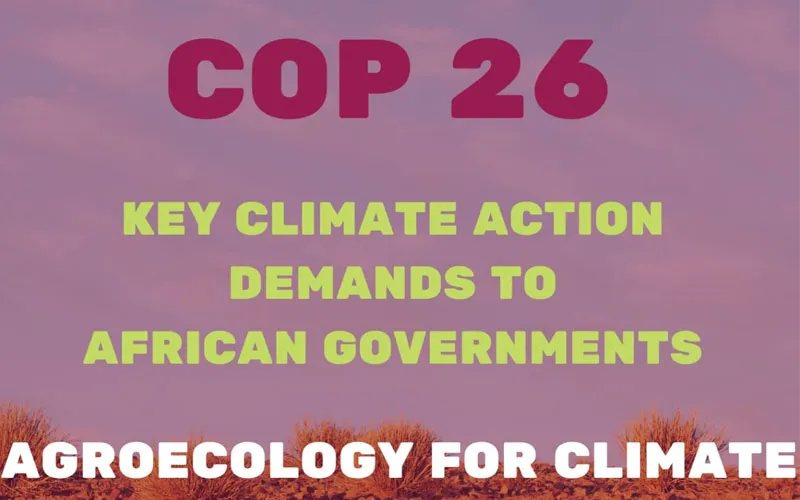Nairobi, 30 October, 2021 / 11:30 pm (ACI Africa).
Representatives of Africa-based civil society groups have called on governments and climate negotiators who have planned to attend the upcoming 26th Conference of the Parties to the UN Framework Convention on Climate Change (COP26) to make human rights the centre of their deliberations.
Officials of the over 20 organizations call on African governments to collaborate and unite as they negotiate on behalf of the people of God on the continent in the October 31 to November 12 Climate discussions in Glasgow, Scotland.
“Put human rights at the centre of the climate agenda. The climate crisis will not be addressed without addressing human rights violations,” say the heads of the organizations that include Caritas Zambia and St. Martin De Porres Catholic Parish of Kumasi Archdiocese in Ghana.
They note that COVID-19 pandemic "has raised the stakes, especially for poor and developing countries in Africa that are already suffering the brunt of climate change and food insecurity.”
Because of the increased risk for the vulnerable people on the continent, the civil society leaders say “there is need for a holistic approach that addresses the economic, social, cultural, and political dimensions of climate change.”








